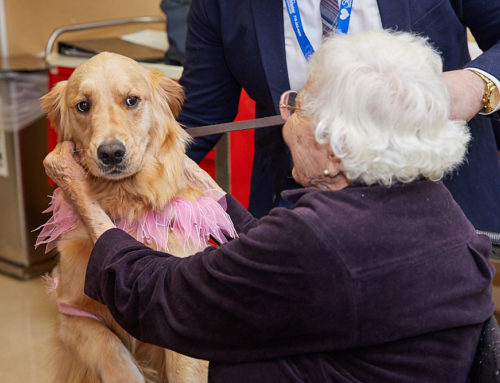Swallowing Difficulty Symptoms – Therapy That Helps
It is not uncommon for adults and older people to have swallowing difficulty problems while consuming food or drinks. However, it is perfectly possible to manage such problems, even in the elderly. Treatment and therapy will depend on whether your swallowing difficulty is in the mouth, throat or oesophagus.
Fairview Rehab & Nursing Home in Queens, NY, has speech and swallowing therapists who work to strengthen patients’ oral muscles. This improves patients’ ability to swallow and reduces the risk of choking on liquids or food. Speech therapy is an important component of our rehab, and also helps those with swallowing difficulties. We provide speech and swallowing therapy both as an inpatient and as an outpatient service.

Symptoms and Signs of Swallowing Difficulty
The general medical term for this condition is dysphagia. Common signs of dysphagia include coughing when eating or drinking and being unable to chew food properly. You may have the unpleasant feeling that food is stuck in your throat or chest and won’t go away.
People with swallowing difficulty also tend to drool more often. That is because they have difficulty swallowing and controlling their own saliva. Left untreated, symptoms may worsen, leading to chest infections, pneumonia, dehydration, malnutrition, or weight loss. Taking oral medication may also be more difficult, leading to other complications.
How To Cure Swallowing Difficulty?
Swallowing difficulty tends to be more common in elderly patients, especially those with underlying health issues. Tailored, one-on-one therapy can alleviate some of the symptoms of dysphagia and give people greater self-esteem and independence. Therapy and compassionate, professional care, with the right medication, can significantly improve well-being and quality of life.
Diet is always important at any stage of life and a dietitian can advise on possible dietary changes. Meanwhile, speech therapists may recommend softer foods and thickened fluids that ease swallowing. They may also try to ensure you get practical support to ease swallowing difficulties at mealtimes.
Speech and Swallowing Therapy
Trained medical professionals, speech and swallowing therapists who are experts in this kind of disorders can support patients with personalized therapy programs. Therapists give patients eating and drinking advice to avoid choking. For example, they may help patients learn how to take smaller bites and chew food thoroughly. Or they can suggest moving food to the back of the mouth before trying to swallow.
Such advice – accompanied by all-important emotional support and a friendly smile – can make a huge difference to people’s lives. Swallowing disorders are often connected to slurred speech and difficulty communicating. At Fairview rehab and nursing home we’ve seen that speech therapy can help patients with swallowing difficulty as well as those with slurred speech. One-on-one therapy, including speech and swallowing therapy, has been proven to ease symptoms.
Do contact us today for more information. We are happy to answer any questions you may have.
This article contains informational and educational materials and does not replace health or medical advice. For questions or concerns regarding your medical condition or health objectives, speak to a qualified physician or healthcare provider.






Leave A Comment